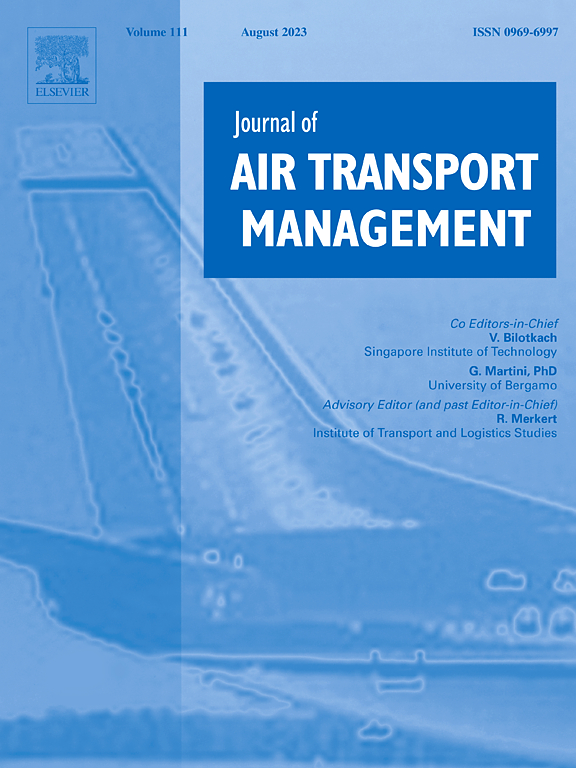航空业如何才能更快地脱碳?对北欧有关短期和中期政策措施的评估
IF 3.6
2区 工程技术
Q2 TRANSPORTATION
引用次数: 0
摘要
缓解全球变暖破坏性影响的迫切需要要求所有部门迅速、显著地减少排放。然而,航空业的脱碳面临着独特的挑战,因为替代方案要么昂贵且稀缺,要么技术不成熟,要么在政治上不受欢迎。本研究以北欧地区为重点,探讨了航空脱碳的潜在策略。通过分析北欧航空旅行数据、机场距离、自然资源潜力、燃料使用、政策措施、利益相关者立场、技术准备水平、法律问题和其他相关因素,我们提出了一种双重方法。首先,在短途航线上,一旦技术在未来几年内成熟,可能会使用电池电动飞机。其次,在中长途航线上,在可预见的未来,可持续航空燃料(SAFs),如果有的话,混合动力和氢技术。此外,成功实施精心设计的政策,为新的飞机和燃料技术创造市场,对于迅速取得进展至关重要。北欧的合作方式,加上实施和加强当前和即将出台的欧盟政策举措,前景可观。本文章由计算机程序翻译,如有差异,请以英文原文为准。
How can aviation be decarbonized faster? An assessment of relevant short- and medium-term policy measures in a Nordic context
The urgent need to mitigate the devastating effects of global warming demands a rapid, significant reduction in emissions across all sectors. However, decarbonizing the aviation industry presents unique challenges due to alternatives being either costly and scarce, technologically immature, or politically unpopular. This study focuses on the Nordic region and explores potential strategies for decarbonizing aviation. By analyzing Nordic aviation travel data, airport distances, natural resource potentials, fuel usage, policy measures, stakeholder positions, technological readiness levels, legal issues, and other relevant factors, we propose a dual approach. First, on short-haul routes, battery electric aircraft may be used, once the technology matures within the next years. Second, on medium- and long-haul routes, in the foreseeable future sustainable aviation fuels (SAFs) and, if available, hybrid and hydrogen technology. Furthermore, the successful implementation of well-designed policies to create markets for the new aircraft and fuel technologies is crucial for rapid progress. A collaborative Nordic approach, combined with implementing and strengthening current and upcoming EU policy initiatives, holds considerable promise.
求助全文
通过发布文献求助,成功后即可免费获取论文全文。
去求助
来源期刊

Journal of Air Transport Management
TRANSPORTATION-
CiteScore
12.40
自引率
11.70%
发文量
97
期刊介绍:
The Journal of Air Transport Management (JATM) sets out to address, through high quality research articles and authoritative commentary, the major economic, management and policy issues facing the air transport industry today. It offers practitioners and academics an international and dynamic forum for analysis and discussion of these issues, linking research and practice and stimulating interaction between the two. The refereed papers in the journal cover all the major sectors of the industry (airlines, airports, air traffic management) as well as related areas such as tourism management and logistics. Papers are blind reviewed, normally by two referees, chosen for their specialist knowledge. The journal provides independent, original and rigorous analysis in the areas of: • Policy, regulation and law • Strategy • Operations • Marketing • Economics and finance • Sustainability
 求助内容:
求助内容: 应助结果提醒方式:
应助结果提醒方式:


